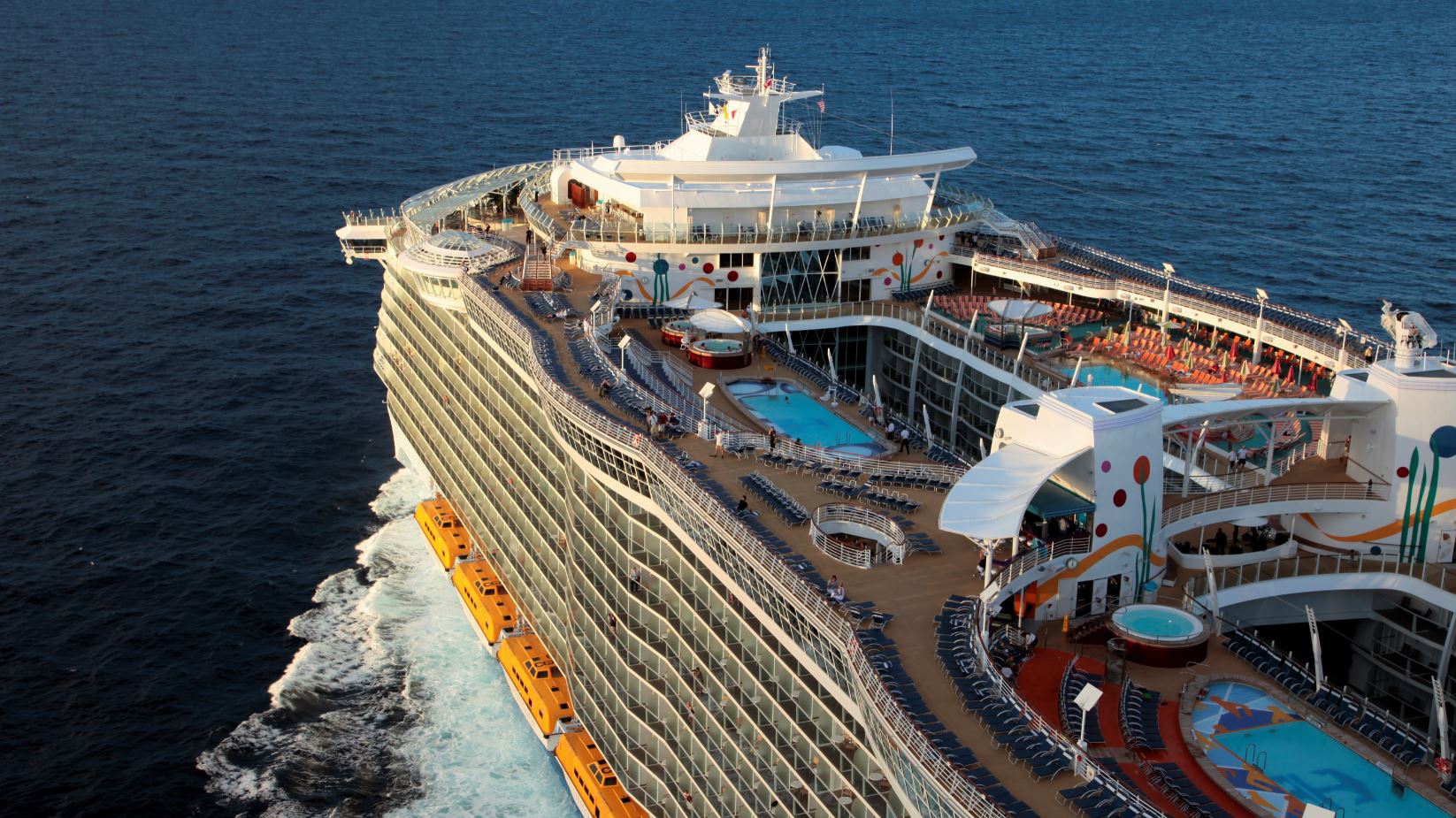Royal Caribbean Cruises Ltd. is rolling out an unprecedented wave of digital innovations touching every aspect of its business, charting a course for a world where travel frustrations have disappeared, erased by technology that is transforming cruise ships from stem to stern.
Sea Beyond sets the course
“Every year, millions of guests are entrusting us with something very precious: their vacation time. To merit that trust, we work to surpass guests’ expectations at every opportunity, from planning their trips to boarding our ships, whether on sea days or shore excursions, and in every dining, recreation and entertainment venue. Sea Beyond is a preview of how we are bringing those aspirations to life in a stem-to-stern transformation of our entire company while creating a new world on the water.” – Richard D. Fain, Chairman and CEO Royal Caribbean Cruises
The changes will be most visible to consumers through a guest-empowering app that will blanket the company’s 48-ship fleet over the next two years, the surge of innovation will also banish check-in lines at ports, equip crew members to anticipate guests’ needs, and enable giant cruise ships to sail through the water on a fuel-saving curtain of air.
“The pace of change is relentless—and so are we. We are harnessing a range of technologies to enhance every facet of our business, every minute of our guests’ vacations, and every inch of the ships we build.” – Richard D. Fain
“Consumers are buying experiences now, not things,” Fain continued. “So we are creating ways for them to design vacations rich in made-to-order, memory-making moments, and even providing recommendations based on what they have enjoyed before or shared with us about their preferences. And with our mantra of continuous improvement, our strategy is to constantly upgrade the guest experience across the fleets of all our brands – Royal Caribbean International, Celebrity Cruises and Azamara Club Cruises.”
For guests: less friction, more time to make memories
The company’s goal is to make the guest experience “hassle-free, personalized and fun” by removing time-stealing moments from the cruise experience. A combination of technologies ranging from facial recognition to RFID tagging to GPS mapping to Bluetooth-enabled beacons will be applied to streamline boarding, manage check-ins automatically and improve wayfinding.

The same technologies are being deployed to put the power to manage guests’ vacation through a new app that will make it simpler than ever to book and plan the cruise vacation from home or with a travel agent.
Once on board, guests can navigate the ships with interactive maps and guides, explore the ship with cool features like x-ray vision, or order drinks to be delivered anywhere on the ship. The app, along with the next generation of the company’s WOW Bands, will also unlock guest staterooms and enable guests to control stateroom lighting and temperature.

For crew: better interaction with guests and home
The innovations enriching the cruise guest experience will be complemented by a suite of tools for crews, as well. For example, the app-enabled offerings for guests will be mirrored on the crew side by mobile applications that help crew members check-in guests, complete required paperwork, track delivery of guests’ bags to their staterooms, and interact with guests and anticipate their needs throughout their vacations.
In addition, crews will have access to easier means to manage their own schedules, stay connected to friends and family while onboard, and stay connected to RCL during their off-contract periods.
For the RCL fleet: smarter, safer ships and a reduced environmental footprint
The technological transformation also encompasses areas beyond the guest experience, including innovations to make ships more energy-efficient.
Forthcoming command centers will use augmented reality to assist with navigation and maneuvering. In addition, in a safety-related application of the same technologies that will help servers deliver a drink to a guest anywhere on board, next generation bridge technology will allow officers to track guests on their way to muster stations to ensure all are accounted for and locate stragglers.

RCL is also innovating to reduce fuel consumption across its fleet, which not only lowers operating costs but also lightens stack emissions that are part of cruising’s environmental footprint. Historically, each new class of RCL ships is significantly more fuel efficient than its predecessors as new high efficiency appliances, window tinting and improved lighting, heating and cooling technologies help reduce energy needs. The company continues to evolve hull designs to reduce drag, an evolution most evident in the “bulbous bows”. In addition, RCL is pioneering the use of an air lubrication system that coats the hulls of its ships with millions of microscopic air bubbles to further reduce resistance and drag. In initial uses, air lubrication has reduced fuel consumption at speed by 7 to 8 percent.
Complementing RCL’s energy conservation efforts are initiatives to use alternative energy sources such as solar panels and fuel cells for power generation. Fuel cell use could fundamentally change ship design by distributing power sources throughout the ship. Furthermore, adoption of fuel cells would also mean producing less energy from diesel generators thus reducing ships’ environmental footprints. Royal Caribbean is planning fuel cell experiments on existing ships, with an eye to extensive use of fuel cells and liquefied natural gas (LNG) propulsion on its upcoming Icon class of ships.
